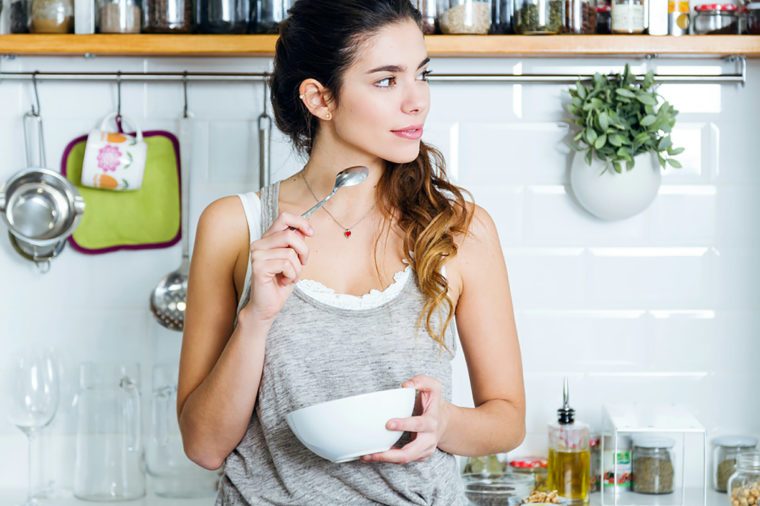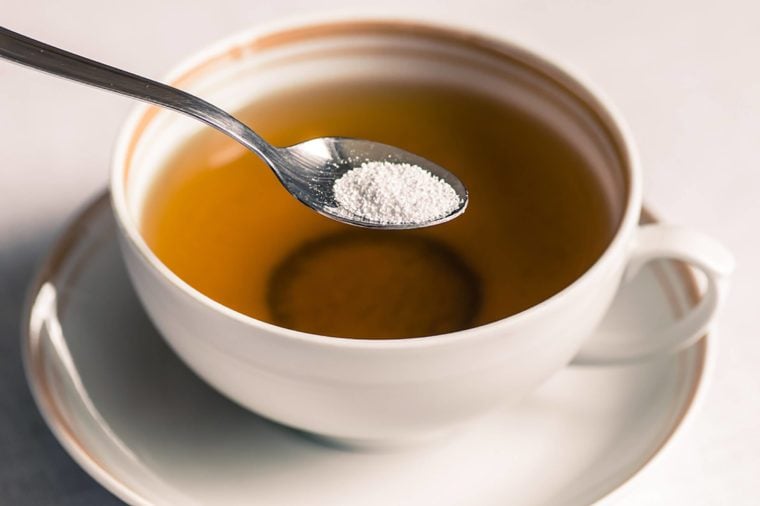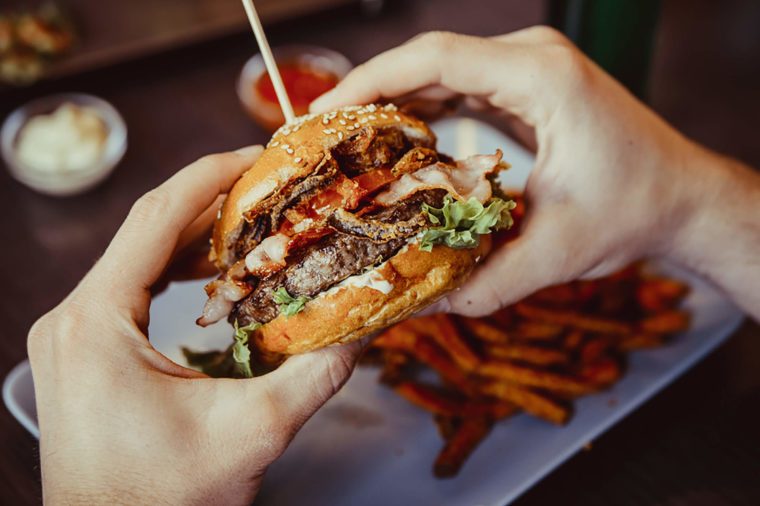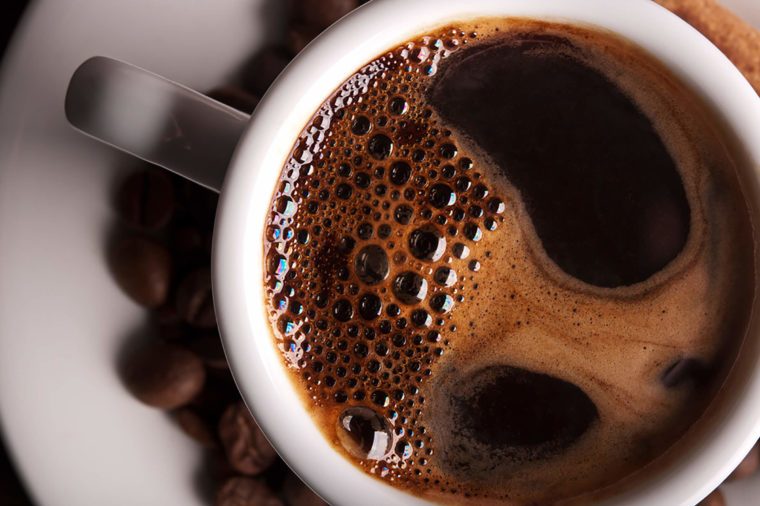- লিঙ্ক পান
- X
- ইমেল
- অন্যান্য অ্যাপ
8 Sneaky Things That Raise Your Blood Sugar Levels ( reader's digest )
Whether you have diabetes and measure your blood sugar levels daily or are just concerned about maintaining healthy blood sugar levels, it’s important to be aware of these unexpected factors that can spike your normal blood sugar.
Skipping breakfast
 NENETUS/SHUTTERSTOCK
NENETUS/SHUTTERSTOCKArtificial sweeteners
 PHOTOSIBER/SHUTTERSTOCK
PHOTOSIBER/SHUTTERSTOCK
Artificial sweeteners have to be better for you than the real stuff, right? An interesting Israeli study suggests that artificial sweeteners still can take a negative toll and are one of the foods that raise blood sugar. When researchers gave mice artificial sweeteners, they had higher blood sugar levels than mice who drank plain water—or even water with sugar!
The researchers were able to bring the animals’ blood sugar levels down by treating them with antibiotics, which indicates that these fake sweeteners may alter gut bacteria, which in turn seems to affect how the body processes glucose. In a follow-up study of 400 people, the research team found that long-term users of artificial sweeteners were more likely to have higher fasting blood sugar levels, reported HealthDay. While study authors are by no means saying that sugary beverages are healthier, these findings do suggest that people who drink artificially sweetened beverages should do so in moderation as part of a healthy diet. Here's what else happens when you cut artificial sweeteners from your diet.
A high-fat meal
 VERYULISSA/SHUTTERSTOCK
VERYULISSA/SHUTTERSTOCK
People with diabetes may worry about the carb contents of their meals, but recent research suggests that fat content can affect blood sugar too—and be one of the foods that raise blood sugar. In a Journal of Nutrition study from 2011, subjects ate a fat-containing beverage (designed to mimic a fatty meal), then drank a sugary beverage six hours later. Their blood sugar levels were 32 percent higher than they were when they didn’t have the fat-containing beverage. It seems that high levels of fat in the blood affect the body’s ability to clear sugar from the blood as well.
Java
 DIMA SOBKO/SHUTTERSTOCK
DIMA SOBKO/SHUTTERSTOCK
CONTENT CONTINUES BELOW AD
Infection
 STOKKETE/SHUTTERSTOCK
STOKKETE/SHUTTERSTOCKSkimping on sleep
 WAYHOME STUDIO/SHUTTERSTOCK
WAYHOME STUDIO/SHUTTERSTOCKSmoking cigarettes
 PERYN22/SHUTTERSTOCK
PERYN22/SHUTTERSTOCK
Obviously, a smoking habit isn’t healthy for anyone, but cigarettes are particularly dangerous for people with diabetes. A 2011 study from California State Polytechnic University found that the more nicotine samples of human blood were exposed to, the higher the A1C level (a measure of blood sugar control). These high blood sugar levels increase the risk of serious diabetes complications, such as heart attack, stroke, and kidney failure, WebMD reported. Here's everything you need to know about A1C.
Certain drugs in your medicine cabinet
 BURLINGHAM/SHUTTERSTOCK
BURLINGHAM/SHUTTERSTOCK
Common drugs, including steroids to control asthma, statins to improve cholesterol levels, and diuretics to lower blood pressure, can raise blood sugar levels. Many of these drugs are important for other conditions, so if you use them, you might need to track and control your blood sugar more closely.
- লিঙ্ক পান
- X
- ইমেল
- অন্যান্য অ্যাপ
মন্তব্যসমূহ
একটি মন্তব্য পোস্ট করুন